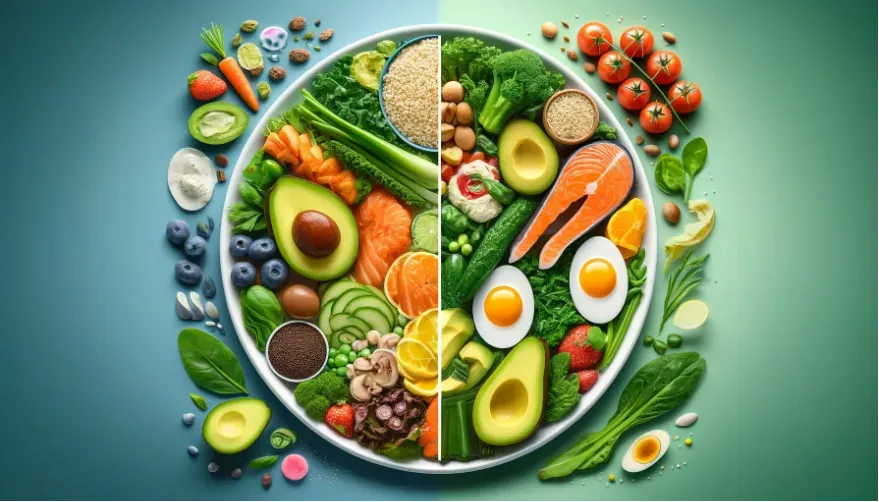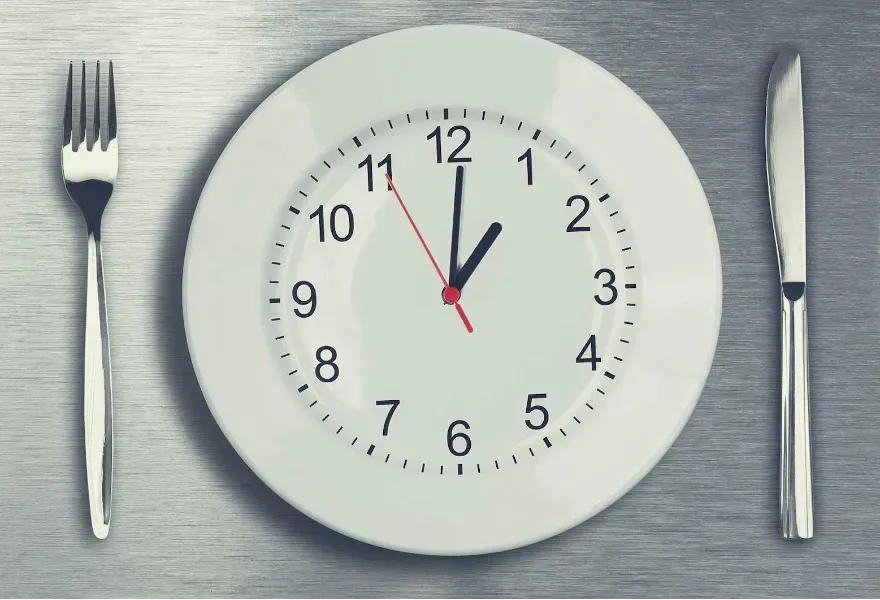How to Choose the Right Weight Loss Strategy: Caloric, Dietary, and Time Restrictions Explained

The journey towards weight loss and improved health is often navigated through various strategies that aim to reduce caloric intake in different ways. This article delves into three distinct methods: caloric restriction, dietary restriction, and time restriction. Each approach offers unique benefits and challenges, making them suitable for different individuals based on their lifestyle, health status, and weight loss goals.
Caloric Restriction: Direct Control Over Energy Intake
Caloric restriction is the most straightforward method to achieve weight loss by directly managing the amount of calories consumed. This approach is well-known among bodybuilders who meticulously track every calorie and macronutrient to create an energy deficit necessary for fat loss. The flexibility of caloric restriction lies in its agnosticism about meal timing and composition, focusing solely on the energy balance.

The Role of Macronutrient Tracking
Tracking macronutrients, such as carbohydrates, fats, and proteins, is essential in caloric restriction because it provides a more detailed understanding of the body's energy balance. By monitoring the specific macronutrient composition of their diet, individuals can ensure they are consuming the right balance of nutrients to support their weight loss goals.
For example, by tracking their protein intake, individuals can ensure they are getting enough of this macronutrient to support muscle growth and repair while still maintaining a caloric deficit for weight loss. Similarly, monitoring their carbohydrate and fat intake can help individuals optimize their energy levels and overall well-being during periods of caloric restriction.
In addition to understanding how much energy they are consuming, tracking macronutrients can also help individuals make informed choices about the types of foods they are eating. For example, focusing on whole, nutrient-dense foods that are rich in fiber and essential vitamins and minerals can help individuals feel more satisfied and energized while reducing their overall caloric intake.
By lowering calorie intake systematically and tracking macronutrients, individuals can achieve a precise energy imbalance that promotes sustainable weight loss. This approach allows for a more personalized and strategic way of managing caloric restriction, making it easier for individuals to reach their desired health and fitness goals.
Achieving Flexible Weight Loss
Despite its strict nature, caloric restriction is considered one of the most flexible weight loss methods because it does not impose restrictions on the types of food consumed or the timing of meals. This flexibility can be particularly advantageous for those who have varied daily schedules or dietary preferences.
Dietary Restriction: Indirect Caloric Control Through Food Choices
Dietary restriction involves limiting certain types of foods or food groups, which often results in a natural reduction in calorie intake. Popular diets like vegan and ketogenic diets exemplify this strategy, where the omission of energy-dense foods typically leads to weight loss.

Impact of Food Choices on Energy Intake
A vegan diet, which eliminates all animal products including meat, dairy, and eggs, can lead to lower overall energy consumption due to the removal of high-calorie foods. Animal products tend to be dense in calories, particularly those that are processed or fried. By cutting out these calorie-dense foods, individuals following a vegan diet may find it easier to maintain a calorie deficit, which is essential for weight loss or weight management.
Furthermore, a vegan diet is typically high in fiber and plant-based foods, which can help increase feelings of fullness and satiety. This can lead to reduced snacking and overall lower food intake throughout the day. In addition, plant-based foods are generally lower in saturated fats and higher in vitamins, minerals, and antioxidants, which can contribute to overall health and well-being.
However, it is important to note that simply following a vegan diet does not guarantee weight loss or health benefits. It is still crucial to pay attention to portion sizes, food choices, and overall dietary balance. Incorporating a variety of nutrient-dense foods such as fruits, vegetables, whole grains, legumes, nuts, and seeds is key to ensuring adequate intake of essential nutrients on a vegan diet.
Ultimately, choosing a diet that restricts certain food groups like animal products can have a significant impact on energy consumption and overall health. A vegan diet can be an effective tool for reducing caloric intake and promoting weight management when followed in a balanced and mindful manner.
Benefits of Dietary Restriction
One way that altering food choices can indirectly decrease calorie intake is by focusing on foods that are high in fiber, protein, and healthy fats. These types of foods can help to increase feelings of fullness and satiety, making it less likely for a person to overeat or snack on unhealthy, high-calorie foods. By choosing nutrient-dense options like fruits, vegetables, whole grains, lean proteins, and healthy fats, individuals can feel satisfied with their meals while still consuming fewer calories overall.
Additionally, certain foods can have an impact on appetite-regulating hormones in the body. For example, foods high in protein have been shown to increase levels of satiety hormones like leptin and decrease levels of hunger hormones like ghrelin. This can help to reduce cravings and prevent overeating.
By focusing on making healthier food choices rather than strictly limiting calories, individuals may find it easier to adhere to a balanced and sustainable eating plan. This approach can lead to long-term changes in eating habits and ultimately result in weight loss or weight maintenance. It's important to remember that every person's dietary needs and preferences are unique, so it may take some trial and error to find the best combination of foods that work for you.
Time Restriction: Intermittent Fasting and Its Effects
Time restriction, or intermittent fasting, reduces eating windows, thereby limiting the opportunity for caloric intake. This strategy has gained popularity for its simplicity and the significant impact it can have on weight management.

Understanding Time-Restricted Eating
Intermittent fasting, which involves alternating periods of eating and fasting, has gained popularity for its potential health benefits, including weight loss. By increasing the non-eating periods and reducing the eating windows, individuals can naturally reduce their caloric intake without having to meticulously count calories or follow strict diets. This approach can be particularly useful for those who struggle with overeating during extended eating periods or who find it challenging to control their calorie intake.
By limiting the time available for eating, intermittent fasting can help individuals become more mindful of their food choices and reduce the likelihood of consuming excessive calories. It can also help regulate hunger hormones, improve metabolic health, and promote fat loss.
Additionally, intermittent fasting has been shown to have positive effects on blood sugar levels, cholesterol levels, and inflammation markers. It may also offer benefits for brain health and longevity. It is important to note that intermittent fasting may not be suitable for everyone, and individual results can vary. It is essential to listen to your body, consult with a healthcare provider or nutritionist, and ensure that you are meeting your nutritional needs while practicing intermittent fasting.
Challenges and Considerations
Time restriction, commonly referred to as intermittent fasting, has gained popularity for its potential weight loss and health benefits. However, when implementing time restriction, it is crucial to consider its impact on lean muscle mass, especially in individuals who are already under-muscled or looking to build muscle.
Excessive time restriction, such as severely limiting the window of time for eating each day, can lead to inadequate protein intake and ultimately result in muscle loss. This is undesirable in weight loss scenarios because losing muscle mass can lower the metabolic rate and make it harder to maintain weight loss in the long term.
To prevent muscle loss while utilizing time restriction for weight loss, it is important to prioritize adequate protein intake and incorporate strength training exercises into the routine. Protein is essential for muscle repair and growth, so ensuring that enough protein is consumed during the eating window can help preserve lean muscle mass.
In addition, incorporating resistance training exercises into the routine can help stimulate muscle growth and maintenance. This can help counteract the potential muscle loss that may occur due to time restriction and support overall body composition goals.
Overall, while time restriction can be an effective tool for weight loss, it is important to approach it mindfully and consider its impact on lean muscle mass. By prioritizing protein intake and incorporating strength training exercises, individuals can support their muscle mass while still reaping the benefits of time-restricted eating.
Integrating Protein Intake in Time-Restricted Feeding
When practicing intermittent fasting or any other dietary regimen that may involve calorie restriction, it is important to ensure that the body is still receiving adequate nutrients to support muscle health. Protein is a crucial macronutrient for muscle maintenance and repair, making it essential to include sufficient amounts in your diet.
High-quality protein sources such as lean meats, poultry, fish, eggs, dairy products, legumes, and nuts are rich in essential amino acids that the body needs to build and preserve muscle mass. By incorporating these protein-rich foods into your meals during eating windows, you can provide your muscles with the necessary building blocks to stay strong and healthy.
In addition to protein intake, it's also important to engage in regular strength training exercises to further support muscle preservation during periods of calorie restriction. Resistance training helps stimulate muscle protein synthesis and can help mitigate the effects of potential muscle loss that may occur when consuming fewer calories.
By combining a diet rich in high-quality protein with regular strength training, you can effectively counteract muscle loss and maintain your muscle mass while following an intermittent fasting or calorie-restricted eating pattern. Prioritizing protein intake and exercise can help you achieve your health and fitness goals while optimizing your body composition.
Conclusion
Each weight loss strategy—caloric restriction, dietary restriction, and time restriction—has its merits and drawbacks. Choosing the right method depends on individual health conditions, lifestyle preferences, and specific weight loss goals. Understanding these methods thoroughly helps in making informed decisions that align with one's health and wellness objectives.
